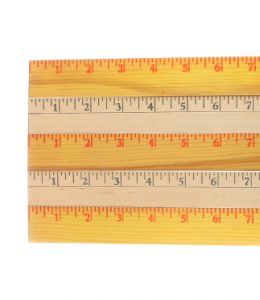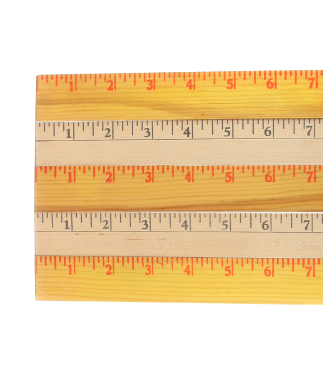 Last week the rumor mills and tech blogs were bustling last week about the possibility of a 7-inch iPad, potentially called the iPad Mini. Rather than focus this entire column on why it makes sense for Apple to make a smaller version of the iPad, I figured I would point out why I think there is a market for 7″ tablets and how such a product may fit in Apple’s and others portfolio.
Last week the rumor mills and tech blogs were bustling last week about the possibility of a 7-inch iPad, potentially called the iPad Mini. Rather than focus this entire column on why it makes sense for Apple to make a smaller version of the iPad, I figured I would point out why I think there is a market for 7″ tablets and how such a product may fit in Apple’s and others portfolio.
The Evolution of Portable Entertainment
In my view the 7″ tablet represents the evolution of portable entertainment. In many of the same ways that the iPad itself represents the evolution of portable computing, so would a smaller iPad represent the evolution of portable entertainment. I spoke about this and was quoted on the subject last week with many press, and my overall point was that the right way to think about a smaller iPad is that it represents more the evolution of the iPod than the evolution of the iPad.
7″ tablets may very well be the ideal size for an ultra-portable entertainment focused tablet. The form factor itself makes it highly portable. It can fit in purses, coat pockets, and many other places easily. The screen size is more enjoyable for entertainment than the most pocketable computer (the smart phone) but still small enough to be more portable than a 9.7-10.1 inch tablet.
The larger tablets like the iPad are more mobile than notebooks but still capable of being used for productivity. In my view the iPad is a general purpose tablet where a 7″ tablet is more specialized and its value will be centered around entertainment.
For the iPad customer I don’t see the value of owning an iPad and an iPad mini. The iPad in my opinion is capable of fulfilling the task of personal computing for the vast majority of mass market, non power user consumers. In our talks with this specific group of consumers were are finding that their iPads are slowly replacing their traditional PCs and we expect this trend to continue.
However, there will still be plenty of consumers who still desire, want, need, a new notebook. This market may very well benefit from a more portable media companion like a 7″ tablet. The notebook plus a 7″ tablet combo will be an ideal solution for a certain segment of the market. And the sufficiency of the iPad as a portable media companion and personal computer will meet the needs of other segments of the market.
An iPad mini strengthens Apple’s ecosystem plain and simple.
For Google, and Amazon, a 7″ tablet is not an ecosystem strengthener it is an ecosystem extender. Amazon’s strategy is to drive commerce and they desire their screen to be consumers personal window to spend money in the Amazon commerce engine and consume Amazon services.
Google’s desire is to extend all of the Google services to a market broader than smart phones. The Nexus 7 is the first solid step in this direction and has all of Google’s services tightly integrated.
For all the above companies a pure media tablet play makes sense. All the above companies have more ways to make money on these devices than just the hardware. So where does that leave everyone else?
There was no MP3 Market
I recall the saying that there was not an MP3 market there was only an iPod market. The same case can be made for the iPad to date. The question in my mind is whether or not this 7-inch tablet market is sustainable for many or just a few. More specifically can anyone but Apple, Google, and Amazon make any money from this form factor?
I use the MP3 market illustration because I am willing to bet that the fundamentals of the 7″ tablet market will function very similar to the iPod market. Namely because the 7″ form factor represents the evolution of portable entertainment, which the iPod was an evolution of as well. These devices will also likely not see subsidization from a carrier any time soon or heavily discounted from a retailer. They are also highly dependent on a rich media ecosystem of services like music stores, video and TV show stores, digital books and magazines, etc. In many ways these devices represent to consumers a larger version of what they knew and loved about the iPod.
The devices being positioned primarily as entertainment devices, and their subsequent dependence of rich media services, only strengthens the case that this market favors the few over the many. I am in no way saying others can’t compete only that it will be very difficult and they may need to turn over new stones in order to find partners who own all or parts of a rich media ecosystems.
Where is Microsoft?
This discussion about the 7-inch tablet segment begs a fascinating question. Can Microsoft play in it? Microsoft has fundamentally built their next generation operating systems as the purest blend between a full desktop and full tablet software platform. This philosophy is not going to work on a segment that is focused purely on media. Metro may all by itself but not Windows 8. So is the answer Windows Phone? Is Windows Phone the solution Microsoft can offer any potential customers looking at the 7″ segment? Microsoft has Nook assets at their disposal but the Nook platform was built on Android. Do they need to revamp Windows Phone or create something new around Nook assets? Or does Microsoft let Android have the 7″ market as the platform of choice for any company not named Apple?
Microsoft is on the eve of simply trying to gain a foothold in tablet computing at large, while on that same eve a new category is dawning that I don’t believe the are even remotely prepared for. Microsoft’s reaction to the 7″ tablet market will be one of the more interesting story lines to watch.
All in all the tablet category is still the fastest growing segment in personal computing. Even though 7″ tablets will be focused on entertainment and media they will continue to ignite this new growth phase of personal computing. I think we can again confidently predict that tablets will be hot again this holiday.

Microsoft is just too wedded to 15 years ago. Not that they haven’t come up with a few modern concepts recently (I thought the colored tiles in Windows Phone 7 were a fine idea and something really fresh), but Microsoft looks through a glass that distorts everything into the view that the Windows desktop OS is the proper basis for all products, now and indefinitely into the future. (I’m exaggerating a little, but only a little.)
This post post made me think. I will write something about this on my blog. Have a nice day!!
Pretty! This has been a really wonderful post. Many thanks for providing these details.